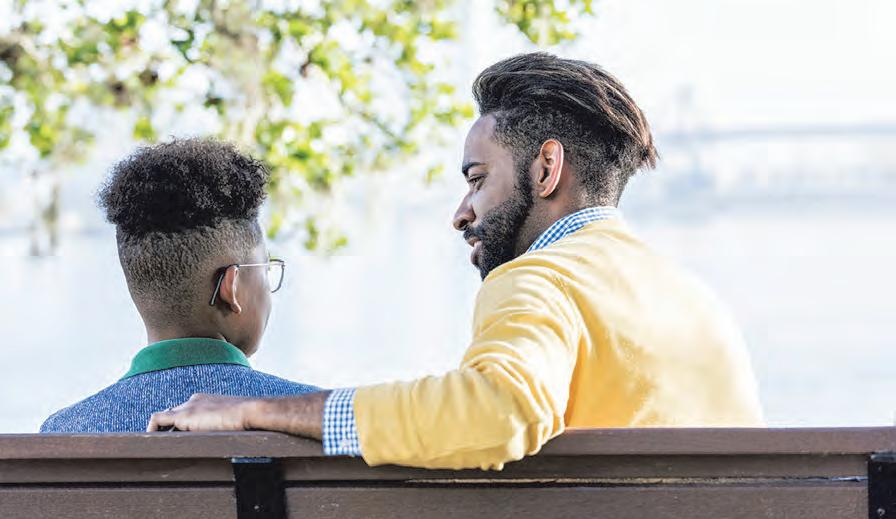
2 minute read
How to discuss 9/11 with children
Twenty years ago, parents across the United States faced the delicate situation of discussing 9/11 with their children. Many adults watched their televisions with a sense of disbelief and horror on September 11, 2001, and parents were forced to explain the inexplicable events of that day to their youngsters.
As the world prepares to commemorate the twentieth anniversary of 9/11, many people who were children or adolescents on the morning of September 11 now have children of their own. Parents may need help explaining the significance of 9/11 to youngsters who were not alive when the attacks occurred. The 9/11 Memorial & Museum recognizes how difficult such conversations may be for parents and offers the following tips that can serve as broad guidelines to facilitate discussions about 9/11 and terrorism.
• Listen. The museum notes that some children will want to discuss 9/11 and terrorism and some won’t. Discussions should not be forced if kids do not want to talk about 9/11 and parents can let kids know they’re ready to listen whenever kids want to talk. Kids who want to speak can be encouraged to share their thoughts and ask questions. Parents are urged to actively listen to kids’ concerns, noting their body language and validating their emotions.
• Don’t avoid discussions. Children who don’t want to discuss 9/11 and terrorism should not be forced to do so. But parents also should not avoid discussing 9/11 and terrorism in general solely because of the difficult subject matter. The museum urges parents to invite conversations if children express an interest in learning about terrorism and 9/11. Ask children, “What would you like to know?” or “How does that make you feel?”
• Remain calm and avoid appearing anxious. Adults should be aware of their tone when discussing 9/11 and terrorism with children. Make a concerted effort to remain calm and not appear anxious. Answer questions honestly, but also in a way that is developmentally appropriate. Ask children if they have any concerns and provide appropriate, realistic reassurance. Let kids express their feelings and focus on how to cope with those feelings rather than suggesting their feelings are unfounded. If necessary, share what’s been done since 9/11 to keep the country safe and prevent future attacks.
• Learn about 9/11 so you can answer questions truthfully. The images of 9/11 are indelible, but even adults who lived through the tragedy may not know the answers to questions kids may ask. In anticipation of such questions, parents can visit 911.memorial.org to learn more about 9/11 so they’re better prepared to answer kids’ questions. Resolve to find answers to questions together if need be.
• Emphasize hope. Acts of terrorism are often so horrific that they can contribute to a deep sense of despair. But parents can explain to children that events like 9/11 also tend to bring out the best in people who are inspired to help and support family, friends and strangers alike. Emphasize the ways this happened on 9/11 and express to kids that their own acts of compassion may help to prevent future acts of violence and intolerance.
The twentieth anniversary of 9/11 may inspire children to ask questions about the attacks and other acts of terrorism. Parents can employ various strategies to ensure such conversations are constructive and supportive.








